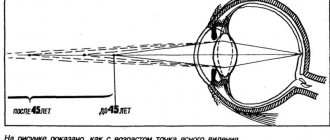In psychology, there is a separate concept - the Napoleon complex. In this case, we are not at all talking about the fact that all brilliant people are abnormal in their own way. This indicates the aggressive desire of small people to demonstrate their superiority. Men's feelings about short stature, as a rule, are formed in the form of a painful inferiority complex.
The origins of the famous complex
The Napoleon complex in psychology is constantly accompanied by a man’s intense suffering about his small body, low level of strength and muscle mass; such people very often suffer from a feeling of imperfection. The internal struggle with his complexes forces the young man to actively develop his intellect, athletic and creative abilities. The desire to surpass the people around him forces a person to study a person or subject for a very long time, about which he can then talk for hours, becoming a scientific figure in this field of knowledge.
Alfred Adler was sure that a feeling of inferiority is present in every person . Since a child, being raised by his mother and father, understands that they are much smarter and stronger than him. The child's inferiority becomes the main impetus for his greater development: the desire to grow up as strong and tall as his father or as beautiful and kind as his mother. But if, due to his genetics or other factors, a child suddenly turns out to be shorter in height than his peers, then the feeling that he will still grow takes on a dominant form. Napoleon syndrome begins to manifest itself significantly after the child’s experiences due to an incorrect approach to education:
- Parents do not give their child the opportunity to feel independent, be responsible for their actions and learn adult life. With regular supervision, parents demonstrate to the child that they are superior to him, thereby not allowing him to feel his strength and intelligence.
- Hypocustody, which is formed due to the rejection of a child by parents. It develops an inferiority complex in the child, since at the same time he regularly feels unnecessary, unwanted, and also unsure of himself and his capabilities.
If errors in upbringing and lack of growth are combined together, then it will happen that the inferiority complex will not only become a negative driving force in the development of the child, but will also develop into a pathological complex, to which psychologists gave the name Napoleon complex.
Typology of passionate leaders
Passionarity is the innate ability of a person to take energy from the close natural environment and use it for the benefit of the development of the ethnic group. In the theory of L.N. Gumilyov, passionate people are characterized by energetic commanders, warriors who have the skill of infecting the people around them with their activity.
Passionate people have an increased level of sexuality, as well as a reduced need for rest. The Napoleon complex, together with innate passionarity, develops in a person a personality that is great in all respects. L.N. Gumilyov drew attention to the fact that most of the commanders and rulers of the country were short in stature: Alexander the Great, Charlemagne, Mussolini.
Signs and methods of control
Despotism
A person strives to prove to everyone that, despite his growth and fragility, he is capable of achievement. And, in order not to go to extremes, becoming tyrannical, think about what advantages you have, what else can you show to the world? For example, Louis de Funes won recognition thanks to his charisma and humor, although his height is 164 cm. If you want championship, look at the article, there you will find recommendations that can advance you in your aspirations without harming yourself or destroying relationships with others .
Excessive external pomposity and self-confidence
Although in fact there are storms and hurricanes inside from fears and anxieties. The more a person shows his arrogance and superiority, the more shame he has for himself inside. This is the kind of phenomenon that exists in psychology. If a colleague or loved one behaves this way, the very understanding of how he really suffers will reduce the level of anger and irritation towards him. But what to do if you feel this way - first of all, admit that you have difficulties with self-awareness and self-perception.
Shame should be fought, just like fear, by moving towards it. Try to be more open to people, clarify whether they really consider you “unworthy”, or does it just seem that way to you? Believe me, the wall of exclusion pushes a large number of people away from you, shame isolates and distorts reality. Take the risk of expressing yourself through positive experiences; over time, you will not need a mask of superiority.
Reality distortion
That is, the peculiarity of associating every failure with one’s short stature, believing that others are simply finding fault with it, not taking it seriously. Thus, they abdicate responsibility for their actions and actions. After all, the opinion that others are simply unfair to them is more comfortable and pleasant than the realization that they did not make enough effort or made a mistake. This is especially common in men. Learn to take responsibility, each time asking the question: “What did I personally bring to the situation that it all ended like this?”
Envy
The desire to be the same as others can cause harm if you constantly experience so-called “black” envy. To cope with it, write a list of 10 qualities and skills that you like about yourself. Then think about why they are bad for you. Then write down 10 points that you don’t like about yourself, and you consider them shortcomings, and then convert them into advantages in the same way.
So you will understand what balance means, and that the very attitude towards something is important
The same Louis de Funes turned his small stature into an advantage, not being embarrassed, but on the contrary, creating pictures where he looks comical against the background of larger people. You are unique, be proud of it and turn your differences from other people into an ally. And also look at the article, there you will find more exercises for understanding it and developing the ability to compete.
Napoleon syndrome in men
Men most often develop such a complex (probably the fact is that short stature is perceived much more acutely in them than in women).
For such a person, self-affirmation in society will be urgently needed for normal existence and self-esteem. Since nature has not endowed them with physical data, they begin to complement this deficiency with other talents and qualities. It is forbidden to say unequivocally that this is bad, since thanks to such aspiration a person becomes more successful and develops only the best traits in himself. But if it was not possible to achieve recognition in society in a good way, such a person begins to shift cruelty and aggression onto other people, and a desire to command awakens in him.
For women with this problem, everything is much simpler. Firstly, their short stature gives them a chance to start seriously practicing acrobatics, rhythmic gymnastics, ballet or dancing. Secondly, it helps them choose from absolutely all men - both shorter and taller. That is why such girls only win .
Distinctive characteristics
Any complex is always some form of mental deviation, which is why it is forbidden to let it take its course and wait for the time when everything goes away on its own. If only because it can never pass anything on its own.
People who suffer from this complex have a large number of symptoms:
- strive to occupy a high position in society at any cost;
- practice imposing their point of view as the only correct one;
- they may have a painful pride;
- qualities of vindictiveness and rancor;
- perfectionism is developed;
- increased demands both on yourself and on the people around you;
- the desire to have only expensive and large things near you;
- Most often, such people try to choose a rather tall soul mate.
Who are Napoleons
People suffering from the Napoleon complex strive with all their might to stand out through professionalism, erudition, humor, sociability, and talent. They try to show off their intelligence, realizing that their height (and large muscles) “failed.” If they fail to attract maximum attention to themselves, they suffer greatly, become depressed and despair, because they associate physical growth with visibility and think that they are not noticed.
Most often, the Napoleon complex occurs in men, because for them physical indicators come first. In addition, men are often captive of prejudices that women look up to men, evaluate them in this way, and like a man to be taller than themselves. Actually this is not true.
“Napoleons” are characterized by perfectionism and demands on themselves. At the same time, they are often intrusive - after all, they need to prove their importance to everyone. They are very easy to offend, they are proud, vindictive and do not like criticism addressed to them. But at the same time, they do not tolerate indulgence for themselves; they prefer to solve all problems on their own. Their sharp mind allows them to find solutions where ordinary people do not see them. Another feature of the “Napoleons” is their love for everything big and majestic: they buy a large car, an impressive house, an office; They choose tall people as friends. This also shows an attempt to compensate for short stature.
Literature, films and cartoons feature brilliant and at the same time mad scientists who are trying to take over the world. They invent superweapons, unique chemical compositions, etc., creating a global catastrophe out of all this. And most often they are depicted as short people, or even dwarfs. Such works of popular culture support the myth that little people are cruel and insanely bloodthirsty. In reality, “Napoleons” are rarely truly evil; more often they are kind, although demanding. Cruelty is unprofitable for them, because they are drawn to people and are dependent on communication: “Napoleons” need to attract people to themselves by all means.
Napoleon complex or... Korais?
Many believe that Napoleon Bonaparte was short, which explains his ambition and desire to conquer the world. People around him even called him “our little corporal.” However, in reality, the height of the “little corporal” was above average: 169 cm. Kutuzov’s height was almost the same – 172 cm. Why did the legend about Napoleon's short stature spread? One explanation for this is that the soldiers and officers of his army wore lush outfits with high plumes, which visually added centimeters to them; Napoleon himself dressed simply, so against the background of his dressed-up subordinates he seemed small. Another explanation is that Napoleon was shorter than some of his contemporary rulers, in particular Alexander I. The Russian Tsar at that time was considered a giant - as much as 183 centimeters. It is clear that in the Russian court environment Napoleon was ridiculed precisely as a “little” ruler.
However, there was a man in Napoleon's circle named Adamantios Korais. This is a Greek scientist and educator who trusted France and hoped that Napoleon would help Greece, which had just gained independence. One of Korais's works is a translation of Strabo into French. The scientist presented this book to Napoleon at a ceremony. When Napoleon saw Korais heading towards him, he almost died laughing: the height of the Greek scientist was... about 1 meter. It was a real dwarf. He was dressed in a dress uniform designed for a tall man, and every now and then he tripped over a sword tied to his belt.
So it would be more correct to call this disease “Korais complex.” True, Korais himself did not suffer from an exaggerated desire to take over the world.
The rise of the world's dictators also does not support the idea that short stature is somehow connected with cruelty and bloodthirstiness. Mussolini was 169 cm tall, like Napoleon. Hitler and Stalin were 173 and 174 cm tall, respectively. Below all of them was, for example, Winston Churchill (167 cm), who could not be called a dictator.
Napoleon complex in women
The fair sex by nature is prone to worry about their appearance , this will not depend on any special factors (at any weight, height, age, a woman will be able to find flaws in herself that will greatly upset her).
If we look in more detail, then all the dissatisfaction of women with short stature is based on two factors:
- Lack of long legs. This is true. But most men value not the length of their legs, but their shape. With regular physical activity and proper nutrition, you can achieve perfect legs. In addition, all women with short stature have small feet, which is considered very sexy;
- Inability to become a model in the future. It should be noted that even tall people are not always ready to lead the life of a star. Everything will individually depend on the personal qualities of each individual person. Eva Longoria, with a height of 157 centimeters, was able to overcome this stereotype and became a popular model.
Famous petite women: Queen Victoria (152 centimeters), Kylie Minogue (155 centimeters), Edith Piaf (147 centimeters), Salma Hayek (157 centimeters), Hilary Duff (155 centimeters), Alla Pugacheva (162 centimeters).
But for an intelligent woman who carefully looks after herself and understands how to correctly present all her main advantages, this fact will definitely not become a serious drawback. A woman will not even focus her attention on such trifles .
Particularly common misconceptions about short men
- short men are not sexy: on the contrary, high levels of testosterone make them more attractive (one of the most striking examples is Tom Cruise);
- women give preference to tall people because of the desire to feel protected and look up: now the ability to establish yourself in life, charisma and determination are much more valuable than height. In addition, nothing prevents short men from keeping themselves in good physical shape and actively playing sports. A striking example of success can be considered world boxing champion Jacob Matlala, whose height is only 147 centimeters.
Being short is not a death sentence at all. And besides, if you don’t want to play sports, no one is stopping you from being more active in brain training - everyone has the right to choose.











